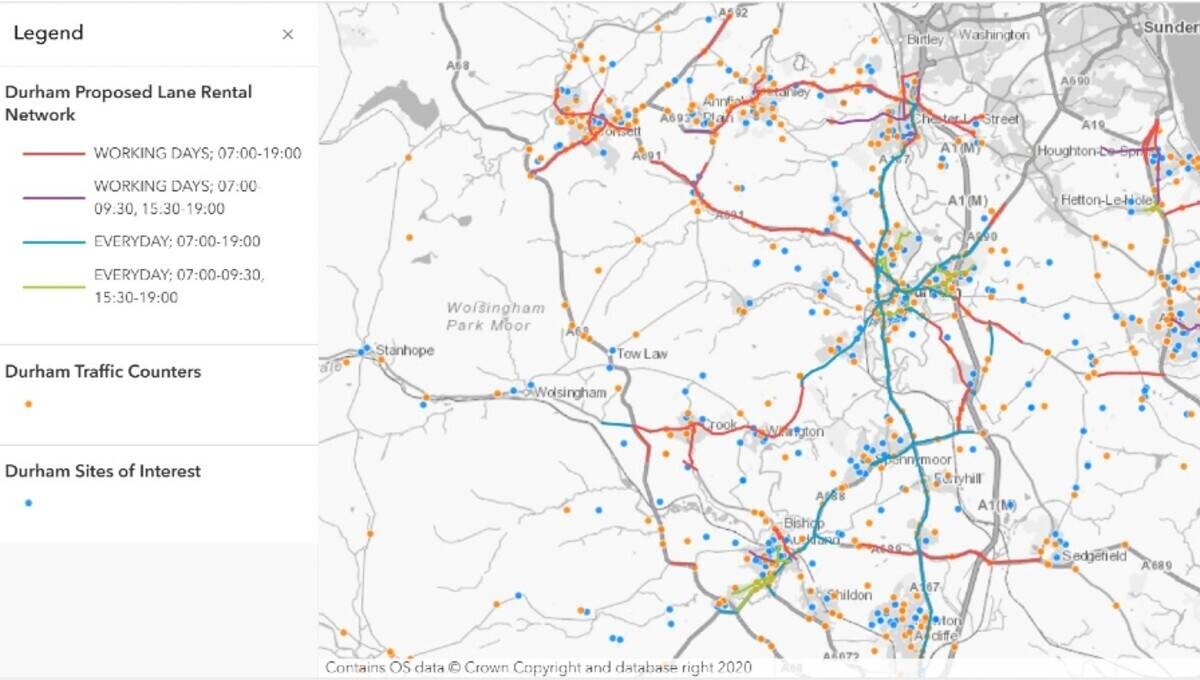The new system supports internal processes and decision making across all tiers of the County.
The recently published UK Location Strategy lays out a clear vision for joining up and integrating information within a consistent reference framework such as this. For the citizen, effective geographic information, combined with other data, translates into knowing where local services are, avoiding traffic congestion and being able to manage one's life better through access to more information. For local government, geographic information supports partnerships, helps it to deliver better and more effective public services, and creates cost cutting efficiencies.
Staffordshire County Council's system relies on the best possible location and address intelligence provided by the NLPG to link multiple sources of information, previously trapped in departmental silos. Citizens benefit from better access to information and services, whilst the Council benefits from better decision making, opportunities to cut costs and more efficient ways of engaging with both its partners and its citizens.
"We went live with 39 individual layers of information including schools, libraries, rights of way and safety cameras plus partner services such as those provided by local Primary Care Trusts. This information is linked by a full set of searchable addresses courtesy of the NLPG," said Roger Guest, Corporate GIS Manager for Staffordshire County Council.
"The ability to locate services centred around a selected address or location is key, enabling a member of the public to 'find their nearest' and view it on a map. It also includes a feed back mechanism, an easy route to feed us information on problems they have so we can deal with them more effectively. It saves the inconvenience of coming into the Council Offices and time spent with a Council Officer. None of this could be achieved without the NLPG," continued Roger Guest. Internally there is a more sophisticated version of the system with selection and analytical reporting functionality which is being rolled out across departments to assist in the delivery of services such as Child Placement Teams, the Rights of Way Team, and Highways and Structures. The NLPG is run on behalf of local government by the Improvement and Development Agency (IDeA) with Intelligent Addressing (IA) as the national custodian.
"The NLPG is now firmly embedded in Local Government" said Michael Nicholson, Managing Director of Intelligent Addressing. "Staffordshire County Council is in line with Varney's vision; its system makes the Web the primary access point for all simple information and advice, reduces âAvoidable Contact' (NI 14) and encourages transactional services. It also ticks the right boxes in terms of the UK's Location Strategy where the merging of information from different sources within a single consistent reference framework helps to support the internal decision making process," continued Nicholson.
23rd February 2009
Notes to Editors:
The NLPG was initiated in 1999 to become the master address dataset for England and Wales and the central hub for the 376 address creating Local Authorities and their Local Land and Property Gazetteers (LLPGs). Based on unique property reference numbers (UPRNs) the underlying principle of these gazetteers is to provide a single definitive ad dress database for all departments and systems across a local authority in order to cut costs, improve efficiency and service delivery.
The dataset enables various local authority departments - from revenue collection and environmental health, to social security, the electoral roll and education - to now offer true âjoined up' government. The benefits also go beyond service delivery. Fraud prevention, tax collection and disaster planning all benefit from the fact that each property is given a âUnique Property Reference Number' which transcends (property) numbers, names, descriptions (such as âThe Nursing Home') and postcodes. UPRNs are assigned for the full life of the plot and/or building.
Intelligent Addressing is a specialist private sector consultancy (an SME) employing recognised experts in addressing. It was originally set up to help develop the National Land and Property Gazetteer (NLPG) on behalf of local government and now manages the NLPG and NSG central data hubs under the terms of the Mapping Services Agreement (MSA) with local government.
Intelligent Addressing contact:
Gayle Gander, Head of Marketing | 0207 747 3500 | E-mail: [email protected] | www.intelligent-addressing.co.uk, www.thensg.org.uk, www.nlpg.org.uk
Editorial enquiries and colour separation requests:
William Allbrook | T: 01666 826641 | F: 01666 824668
The Improvement and Development Agency (IDeA) The IDeA works in partnership with all councils, to enhance the performance of the best, accelerate the speed of improvement of the rest, and develop the sector as a whole. IDeA has brokered the Mapping Services Agreement (MSA) with Intelligent Addressing to develop the NLPG and NSG, through the Local Government Information House (LGIH), a wholly owned subsidiary of the Agency.
Working in partnership with the local government community developing national infrastructure projects that enable councils to deliver local services more effectively, LGIH acts as an intermediary between the public and the private sector enabling it to negotiate with private companies on behalf of local authorities in order to provide key parts of a technical infrastructure for improved service delivery.
The NLPG is a joint venture between the Information House and Intelligent Addressing Limited.
IDeA contacts:
Paul Bailey | 020 7296 6600 | Email: [email protected] | www.idea.gov.uk



